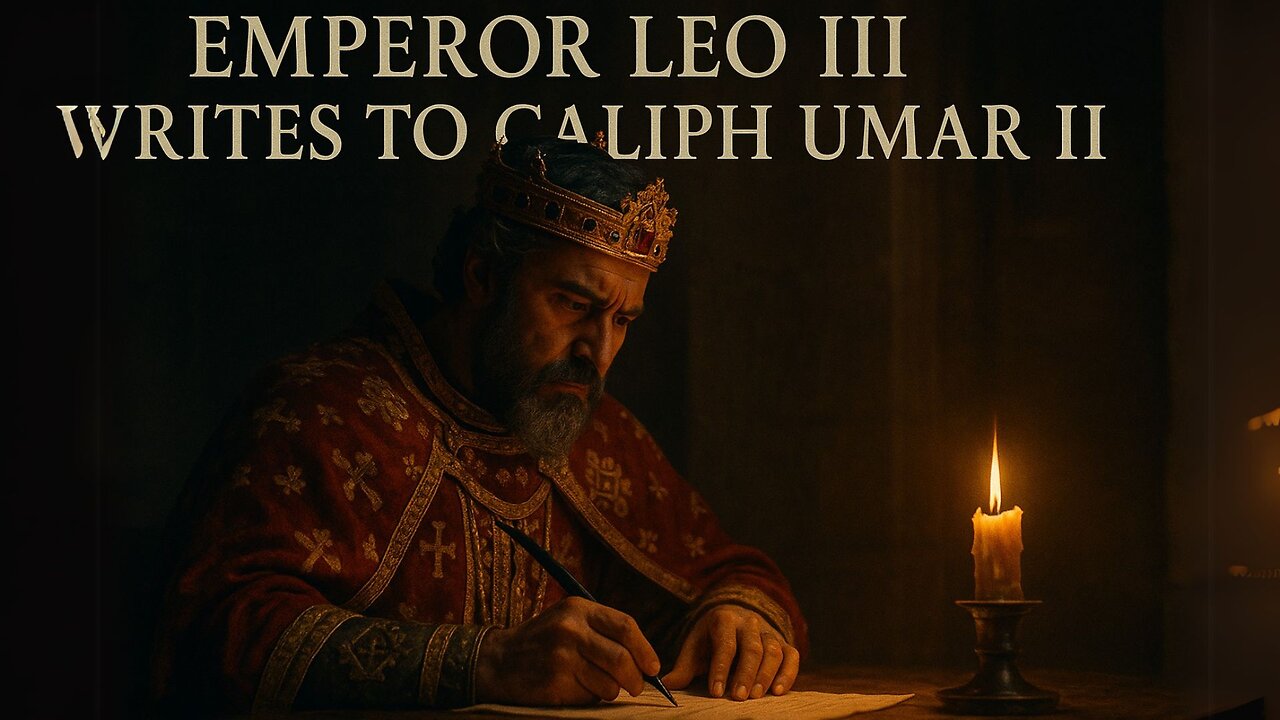Premium Only Content

Did Ancient Leaders Really Write Holy Books?
As the 8th century unfolded, the Byzantine Empire stood as Christendom’s last bastion against the surging tide of the Umayyad Caliphate, its capital of Constantinople under relentless siege. In this crucible of survival, Emperor Leo III, a soldier-king crowned in crisis, received a letter from Umar II, the pious Umayyad caliph whose reforms had revitalized the Islamic empire.
In c.717, Leo responded with a missive that resonates with defiance, faith, and enigma—a rare Christian rebuttal to an Islamic ruler at the height of Umayyad power. Preserved in later sources, such as the Armenian chronicle of Ghevond, Leo’s letter is a tapestry of theological argument and imperial resolve, challenging Umar’s claims and defending the Christian faith against the caliph’s invitation to convert.
What makes this correspondence so riveting is its audacity: a beleaguered emperor, facing the might of an ascendant Islam, dares to engage his adversary in a battle of words and ideas. Leo’s response reveals a Christianity under pressure, yet unwavering, while hinting at a nuanced awareness of the Islamic faith’s emerging doctrines.
Was his letter a mere defense of orthodoxy, a strategic bid to bolster Byzantine morale, or a bold attempt to sway the caliph himself? This video breathes life into Leo III’s words, transporting viewers to a pivotal moment where empires and faiths collided. Step into the early 8th century, where the fate of Constantinople hung in the balance, and hear the voice of an emperor who refused to yield.
Join us in this exploration of Leo III, his letter to Umar II, and the clash of Christian and Islamic worlds.
-
 6:25
6:25
J. Corman Kane
16 days agoKing Solomon Writes to Queen Sheba - The Untold Love Story
161 -
 39:31
39:31
Her Patriot Voice
13 hours ago $1.07 earnedBlack Conservative Surrounded + ROBBED By Leftists!
2.06K18 -
 13:25
13:25
The Gun Collective
13 hours agoWOW! A LOT of new GUNS just dropped!
2.84K5 -
 LIVE
LIVE
BEK TV
22 hours agoTrent Loos in the Morning - 9/04/2025
275 watching -
 8:13
8:13
Geoff_Tac
1 day agoMAC 1014 Shotgun (Benelli Clone)
2.51K2 -
 22:30
22:30
Ohio State Football and Recruiting at Buckeye Huddle
13 hours agoOhio State Football: How Matt Patricia Confused Arch Manning and Texas
8.98K -
 9:07
9:07
MattMorseTV
17 hours ago $4.52 earnedTrump just BLASTED the CCP.
29.8K47 -
 58:44
58:44
The Official Corbett Report Rumble Channel
12 hours agoTurning the Tide on 9/11 with Curt Weldon
9.71K17 -
 10:47
10:47
Nikko Ortiz
16 hours agoThese Tik Tok Clips Are Extremely Painful...
24.5K3 -
 8:12
8:12
VSOGunChannel
18 hours ago $0.71 earnedATF Still Wants to Take Your Incomplete Guns
7.98K8